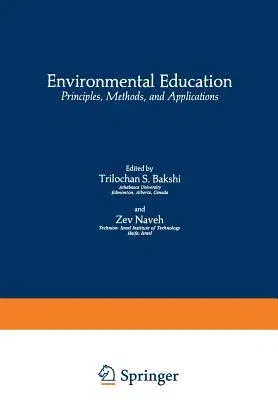Trilochan S Bakshi
(Author)Environmental Education: Principles, Methods, and Applications (Softcover Reprint of the Original 1st 1980)Paperback - Softcover Reprint of the Original 1st 1980, 15 June 2012

Qty
1
Turbo
Ships in 2 - 3 days
In Stock
Free Delivery
Cash on Delivery
15 Days
Free Returns
Secure Checkout
Part of Series
Environmental Science Research
Part of Series
Environmental Science Research (Closed)
Print Length
298 pages
Language
English
Publisher
Springer
Date Published
15 Jun 2012
ISBN-10
1468437151
ISBN-13
9781468437157
Description
Product Details
Authors:
Book Edition:
Softcover Reprint of the Original 1st 1980
Book Format:
Paperback
Country of Origin:
NL
Date Published:
15 June 2012
Dimensions:
24.41 x
16.99 x
1.63 cm
ISBN-10:
1468437151
ISBN-13:
9781468437157
Language:
English
Location:
New York, NY
Pages:
298
Publisher:
Weight:
485.34 gm

